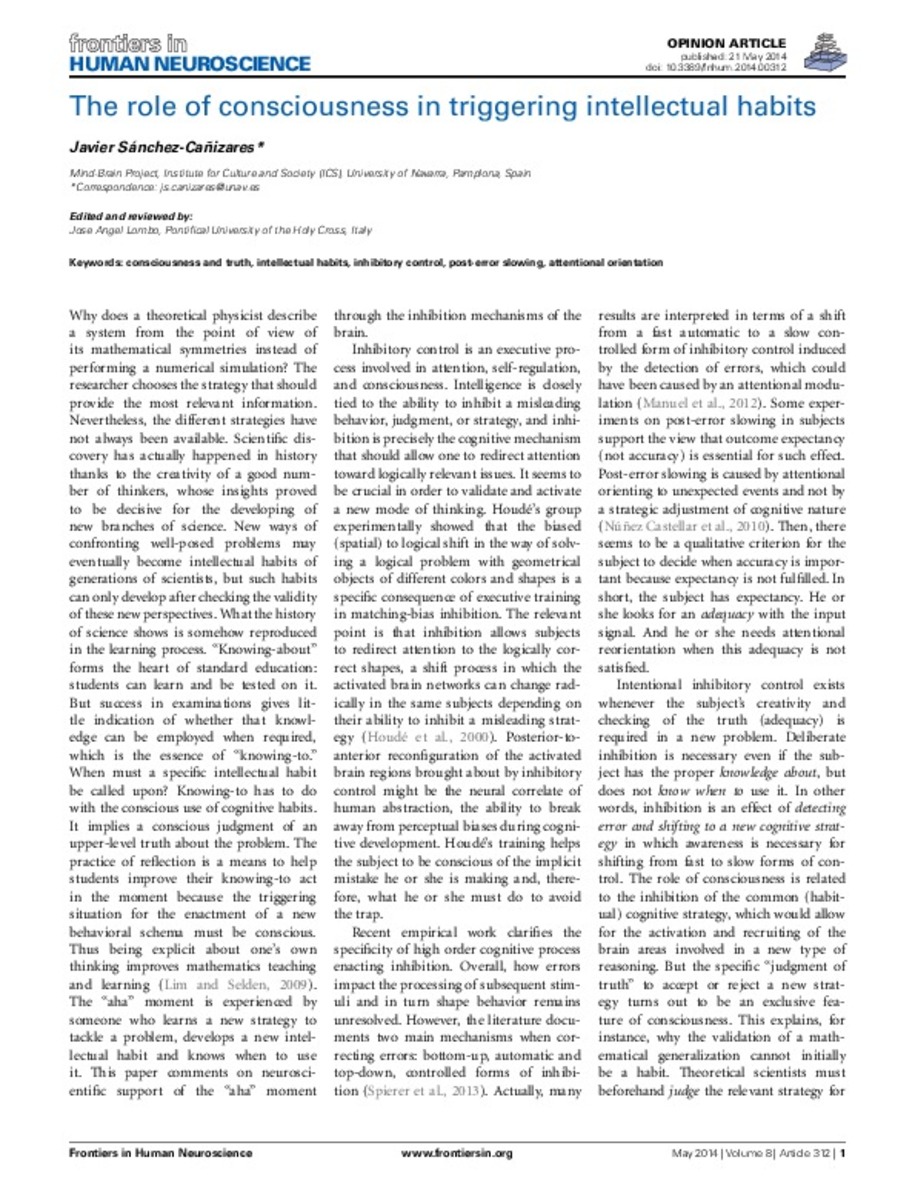Full metadata record
| DC Field | Value | Language |
|---|---|---|
| dc.creator | Sánchez-Cañizares, J. (Javier) | - |
| dc.date.accessioned | 2014-09-09T16:21:41Z | - |
| dc.date.available | 2014-09-09T16:21:41Z | - |
| dc.date.issued | 2014 | - |
| dc.identifier.citation | Sánchez-Cañizares J (2014) The role of consciousness in triggering intellectual habits. Front. Hum. Neurosci. 8:312 | es_ES |
| dc.identifier.issn | 1662-5161 | - |
| dc.identifier.uri | https://hdl.handle.net/10171/36509 | - |
| dc.description.abstract | When must a specific cognitive habit be called upon to solve a problem? In the subject’s learning process, ‘knowing-to’ is connected with a conscious particular judgment of truth or ‘aha’ moment enacting a new behavioral schema. This paper comments on recent experiments supporting the view that a shift from automatic to controlled forms of inhibition, involving conscious attention, is crucial for detecting errors and activating a new strategy in complex cognitive situations. The part that consciousness plays in this process agrees with its philosophical description as ‘judge of truth’, and can thus be regarded as an essential precursor to the development of higher cognitive habits | es_ES |
| dc.language.iso | eng | es_ES |
| dc.relation | Obra Social La Caixa | - |
| dc.rights | info:eu-repo/semantics/openAccess | es_ES |
| dc.subject | Attentional orientation | es_ES |
| dc.subject | Post-error slowing | es_ES |
| dc.subject | inhibitory control | es_ES |
| dc.subject | intellectual habits | es_ES |
| dc.subject | Consciousness and truth | es_ES |
| dc.title | The role of consciousness in triggering intellectual habits | es_ES |
| dc.type | info:eu-repo/semantics/article | es_ES |
| dc.relation.publisherversion | http://journal.frontiersin.org/Journal/10.3389/fnhum.2014.00312/full | es_ES |
Files in This Item:
Statistics and impact
Items in Dadun are protected by copyright, with all rights reserved, unless otherwise indicated.






